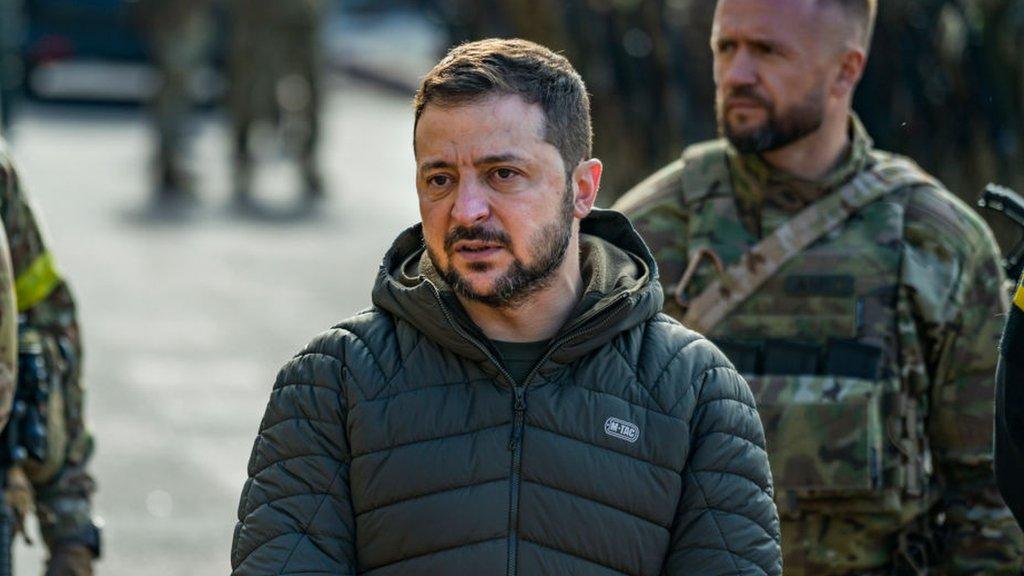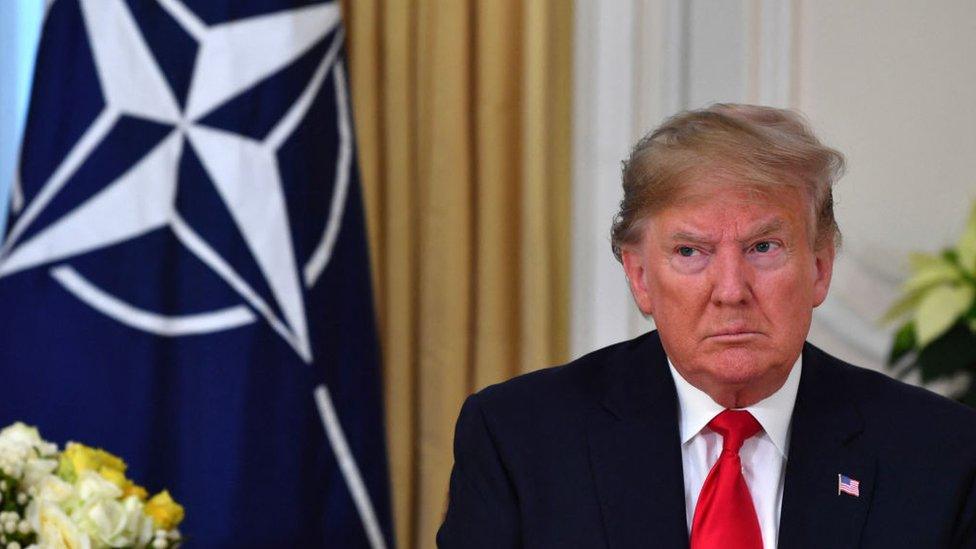Ukraine war: Poland says missile deaths an unfortunate incident
- Published
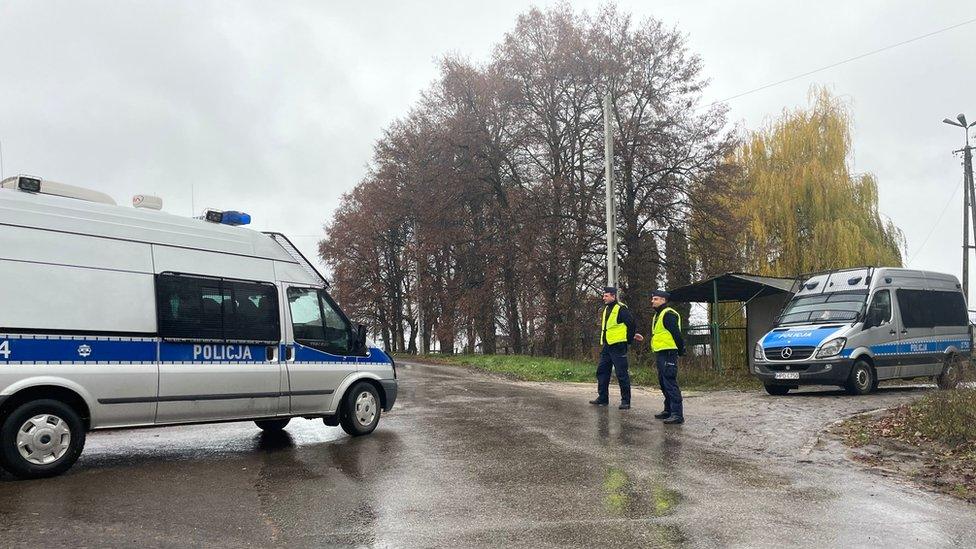
Nato ambassadors met on Wednesday with Poland expected to invoke the alliance's Article 4 calling for consultations
Polish President Andrzej Duda has said there are no signs of an intentional attack after a missile strike killed two people on a farm near the western border with Ukraine.
Earlier, US President Joe Biden said it was "unlikely" the missile had been fired from Russia.
The two workers were killed as Ukraine came under fire from one of the biggest barrages of missile strikes of the war.
The Kremlin had insisted it had nothing to do with the deaths.
Poland said initially that the missile that hit the farm at Przewodow, 6km (4 miles) from the border was Russian-made. The explosion left a large crater and a farm trailer lying on its side.
Watch: We agree missile likely from Ukraine air defence, says Nato chief
The two men who died were described as local men aged 60 and 62. BBC reporter Dan Johnson said a police cordon was erected around the scene close to a small primary school in the village, which is in an agricultural area of south-eastern Poland.
Accusing Western states of a hysterical reaction, Russian spokesman Dmitry Peskov said Warsaw should have immediately made clear the debris had come from Ukraine's S-300 air defences.
Both Russia and Ukraine use the old Soviet surface-to-air missiles and Kyiv said it wanted to be part of the investigation, adding it was ready to provide evidence of a "Russian trace" in the strike.
The BBC's Paul Adams said Ukraine's air defences had been working hard to bring down Russian missiles and it was possible that one of the missiles fired had been knocked off course.
As investigators searched the site of the strike, Nato ambassadors met in Brussels to assess how to react to Russia's war spilling over into a member state.
Secretary General Jens Stoltenberg told reporters there was no indication that the incident was a result of a deliberate attack or that Moscow was preparing offensive actions against the defensive alliance.
However, he said that "Russia bears ultimate responsibility as it continues its illegal war against Ukraine", adding: "Let me be clear, this is not Ukraine's fault."
More than 90 Russian missiles were fired at Ukraine on Tuesday, according to Kyiv. Although the Ukrainian military said 77 were shot down, some of the missiles hit Lviv, not far from the country's western border with Poland.
Ukrainian President Volodymyr Zelensky said most of the rockets fired by Russian forces had been aimed at the country's energy infrastructure.
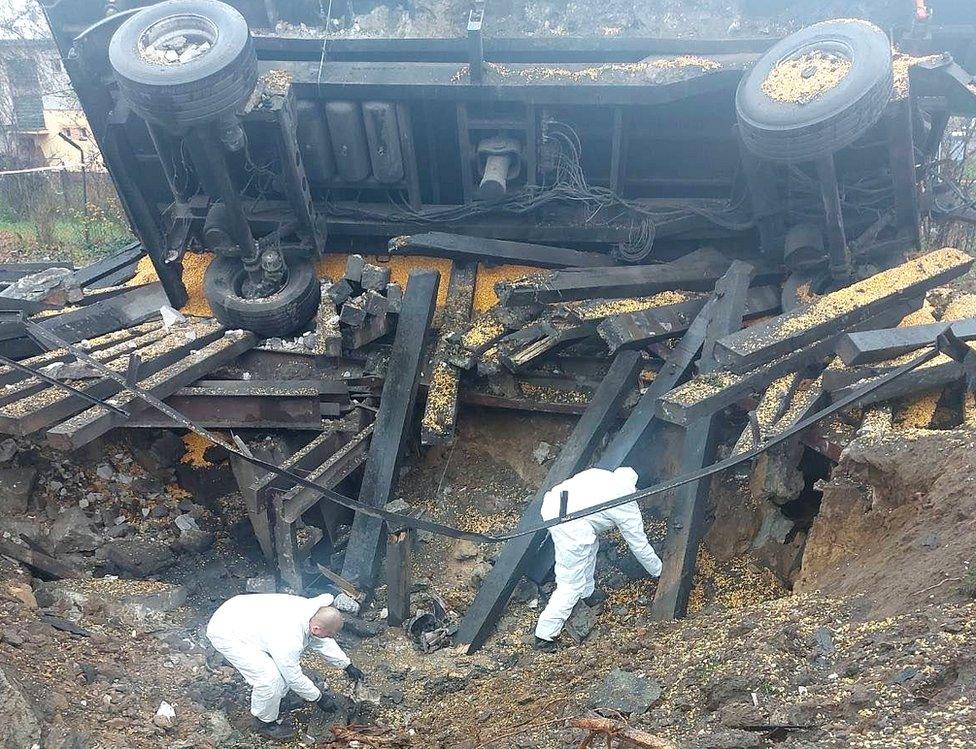
Polish police secured the area on Wednesday morning as investigators searched the site in Przewodow

Poland's military was placed on high alert in the aftermath of the explosion.
On Wednesday, Polish President Duda told a press conference that although a Russian-made S-300 missile was most likely to blame, there was no evidence it had been fired by the Russian side. Prime Minister Mateusz Morawiecki added that invoking Nato's Article 4, which calls for consultations in the face of a security threat, might not be necessary.
In a statement, Western leaders at the Bali summit condemned Russia's "barbaric missile attacks" on Ukraine's cities, external and civilian infrastructure and offered their full support to neighbouring Poland.
Among those attending were President Biden, UK Prime Minister Rishi Sunak, French President Emmanuel Macron and EU Commission President Ursula von der Leyen.
Ukraine's Foreign Minister Dmytro Kuleba said earlier that any claim that Ukraine was responsible for Polish deaths was a Russian "conspiracy theory" and that anyone amplifying the message was spreading "Russian propaganda".
Despite lending support to Ukraine since Russia's invasion, Nato has been careful not to become too heavily involved in the conflict in order to prevent an escalation.
Lithuania's President Gitanas Nauseda called on Wednesday for Nato air space to be defended and said he would actively support deploying air defences on the Polish border with Ukraine, as well as the rest of Nato's eastern flank.
A German spokesman said Berlin would offer support to Poland's air defences, but all Nato allies were agreed they wanted to avoid further escalation
Nato Secretary General Jens Stoltenberg said he had spoken to Polish President Duda and the military alliance was "monitoring the situation".
United Nations Secretary General António Guterres also said he was "very concerned" by the Poland explosion and called for a thorough investigation.
"It is absolutely essential to avoid escalating the war in Ukraine," said his spokesman, Farhan Haq.
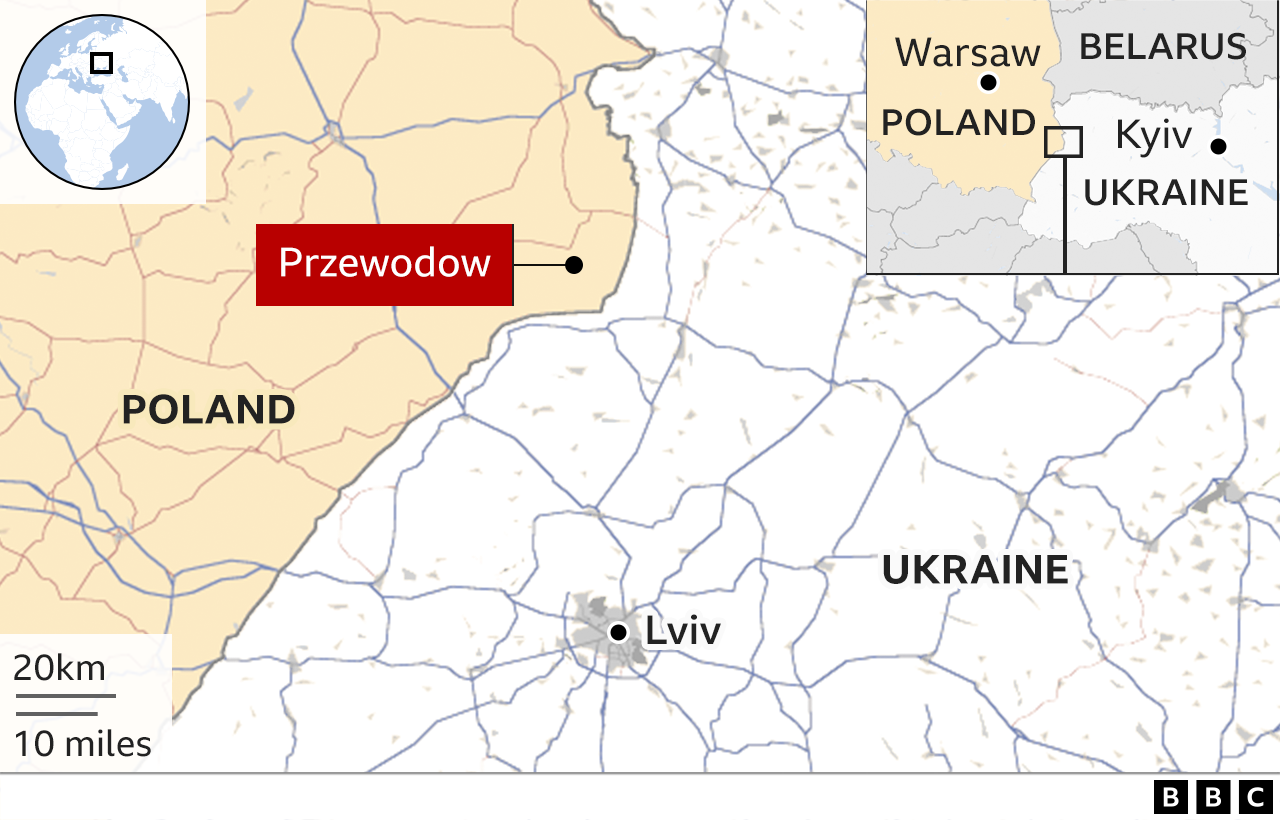
- Published15 November 2022
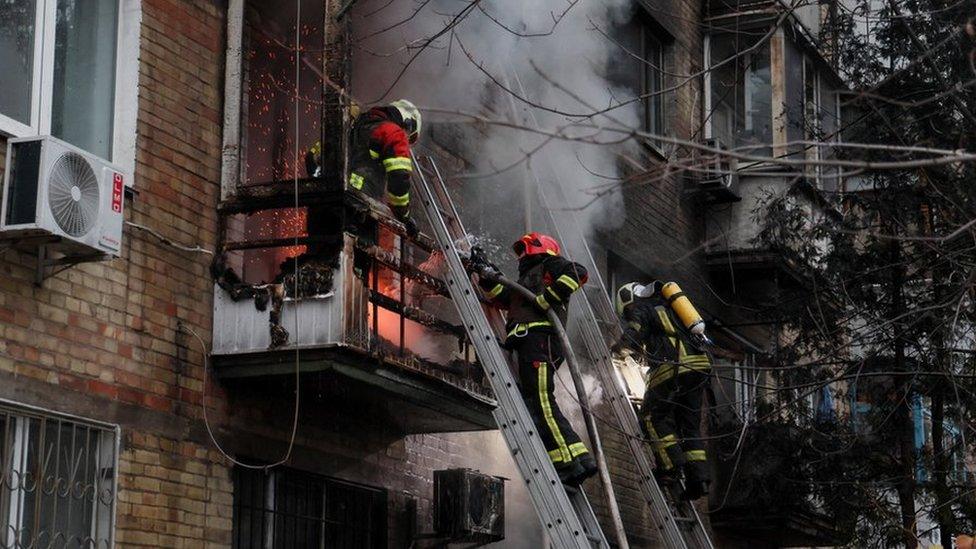
- Published15 November 2022
